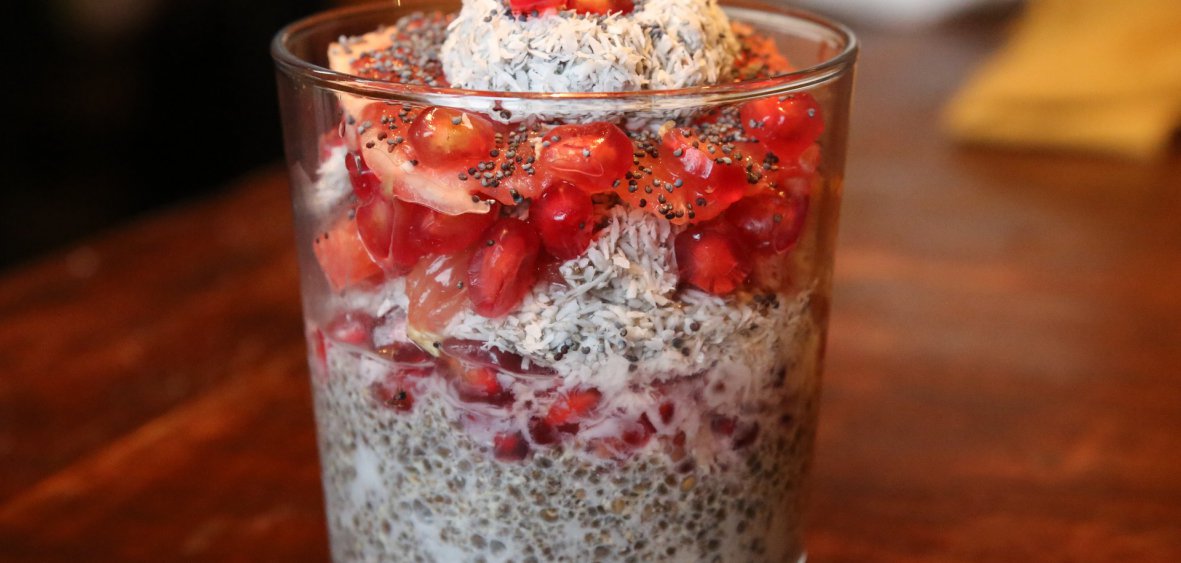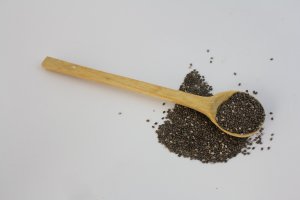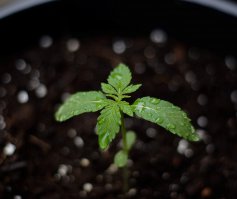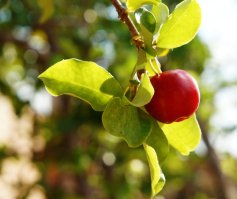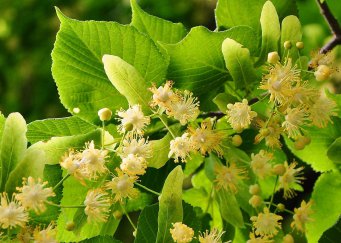 Chia seeds are a source of omega-3 fatty acids, calcium and iron. For those who want to lose weight, Spanish sage, or more precisely, its seeds, are a huge source of fibre. Spanish sage is compared to flaxseed in terms of its impact on our health and condition.
Chia seeds are a source of omega-3 fatty acids, calcium and iron. For those who want to lose weight, Spanish sage, or more precisely, its seeds, are a huge source of fibre. Spanish sage is compared to flaxseed in terms of its impact on our health and condition.
Origin of Spanish sage
The plant comes from Mexico and Guatemala. It has been appreciated by South Americans for its wealth of omega-3 fatty acids, which sage provides more than farmed Atlantic salmon. For those who don't like or can't drink milk or eat spinach, chia seeds are a great alternative. They contain lime and iron in quantities much higher than the two products. In addition, from chia seeds we can draw full value protein, potassium, magnesium, phosphorus and large amounts of fiber.
The richness of chia seed
Nutritional values of chia seeds (in 100 g):
- Energy value - 486 kcal
- Total protein - 16.54 g
- Fat - 30.74 g
- Carbohydrates - 42.12 g
- Fibre - 34.4 g
Vitamins:
- Vitamin C - 1.6 mg
- Thiamine - 0.620 mg
- Riboflavin - 0.170 mg
- Niacin - 8.830 mg
- Vitamin A - 54 IU
- Vitamin E - 0.50 mg
Minerals:
- Calcium - 631 mg
- Iron - 7.72 mg
- Magnesium - 335 mg
- Phosphorus - 860 mg
- Potassium - 407 mg
- Sodium - 16 mg
- Zinc - 4.58 mg
Fatty acids (28 g):
- omega-3- 4915 mg
- Omega-6-1620 mg
Please note that hay seeds can be taken regularly, but the daily portion should not exceed 15 g (approx. 3 teaspoons).
Omega-3 acid, an antidote to depression and dementia
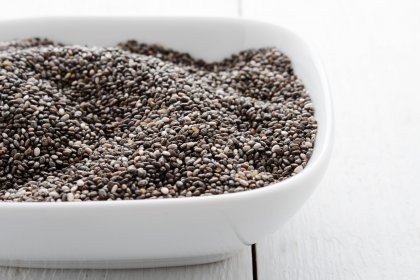 Omega-3 fatty acids have a beneficial effect on the human nervous system. They make us calmer and relieve depressive states. Therefore, it is worth to assimilate them in the autumn-winter season, when this disease takes its greatest harvest.
Omega-3 fatty acids have a beneficial effect on the human nervous system. They make us calmer and relieve depressive states. Therefore, it is worth to assimilate them in the autumn-winter season, when this disease takes its greatest harvest.
Acids support brain function, improve memory and increase concentration. Due to these properties, they are particularly recommended for learners and elderly people as a way to inhibit the symptoms of dementia.
Another advantage of omega-3 fatty acids is the effect on our eyesight. Not only do they keep it in good shape every day, but they also prevent macular degeneration.
Fish are considered to be a popular source of omega-3 fatty acids. They are the richest in them:
- farmed Atlantic salmon (smoked or fried) - 1,8 grams of omega-3 acids per 100 g,
- anchovy (in oil, drained) - 1,7 grams of omega-3 fatty acids per 100 g,
- sardines in tomato sauce, whole, drained - 1.4 grams of omega-3 fatty acids per 100 g,
Recall, chia seeds contain 4.9 grams of omega-3 fatty acids per 28 grams portion.
Assisting the cardiovascular system
Omega-3 fatty acids help to lower the LDL cholesterol (commonly called "bad cholesterol"), while at the same time increasing the level of "good cholesterol", i.e. HDL. Consuming chia seeds can thus reduce the risk of atherosclerosis and heart disease.
In addition, the potassium content of the seeds has a regulating effect on blood pressure.
Influence of chia seeds on the digestive system
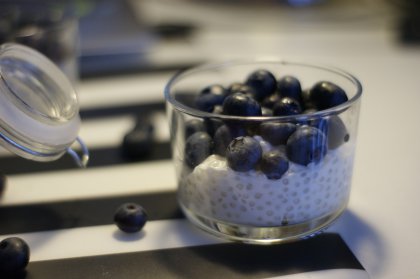 High fibre content in chia seeds stimulates intestinal peristalsis and speeds up digestive processes.
High fibre content in chia seeds stimulates intestinal peristalsis and speeds up digestive processes.
The World Health Organization recommends that you consume about 35 grams of fibre every day (remember, 100 g of chia seeds contain 34.4 g of fibre!). It is not only an excellent regulator for the digestive system, but also has a preventive effect against colorectal cancer.
Chia seeds contain so much fibre that it is practically enough to cover your daily needs. Therefore some people who regularly consume these seeds may even feel uncomfortable (bubbling in stomach, gases, etc.). It is therefore necessary to exercise moderation and sometimes to take breaks in a diet containing chia seed. Remember that although 100 g of seeds is a daily dose of fibre, we should not consume more than 15 g of fibre a day.
Chia seeds should not be consumed by people who suffer from intestinal inflammation or other diseases of the gastrointestinal tract.
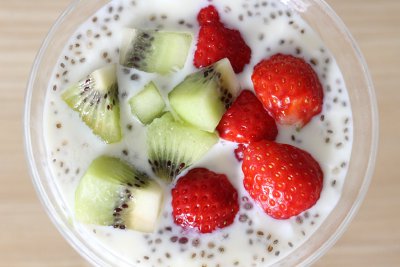
Vegetarian dietary ingredient
Chia seeds contain 5 times more protein than milk. In 100 g there are 16.54 g of high quality protein. The seeds contain 91 amino acids, are extremely valuable and very attractive for vegetarians, bodybuilders and athletes.
Calcium richness
In 100 g of hay seeds there is 631 mg of calcium, which is the same amount as in 2 glasses of milk. The seeds also contain phosphorus and magnesium. The presence of these three elements is very important for keeping the bone system in good condition.
Influence of chia seeds on neoplastic diseases
Chia seeds are recommended for women because of their ALA acid content. This acid destroys the cells responsible for cervical cancer and breast cancer. At the same time, it does not destroy healthy body cells. This is a great support for women.
At the same time, studies show a certain correlation between ALA intake and the risk of prostate cancer development. Although scientists have reassured us that the influence of this acid on the presence of cancer is negligible, it is worthwhile for men to be aware of it.
Chia seeds as a dietary enrichment
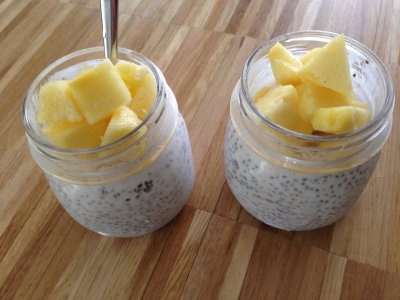 The seeds can be eaten dry, whole, ground (in salads, muesli, yoghurts) or soaked (like flaxseed). It is an excellent soup thickener. Latin Americans compose refreshing drinks (chia seeds with non-carbonated mineral water and lemon juice).
The seeds can be eaten dry, whole, ground (in salads, muesli, yoghurts) or soaked (like flaxseed). It is an excellent soup thickener. Latin Americans compose refreshing drinks (chia seeds with non-carbonated mineral water and lemon juice).
These seeds are also used to make oil, which can be used cold, e.g. as an addition to salads. Oil is not suitable for heat treatment.

